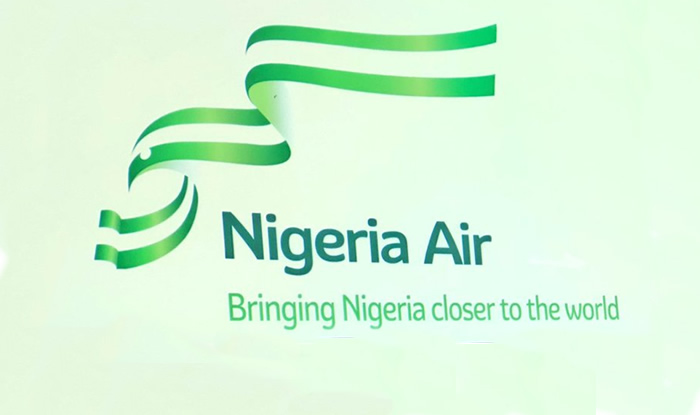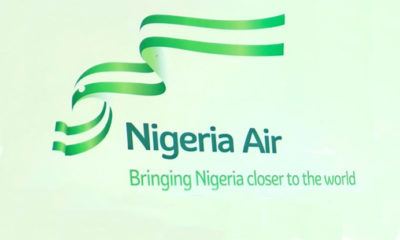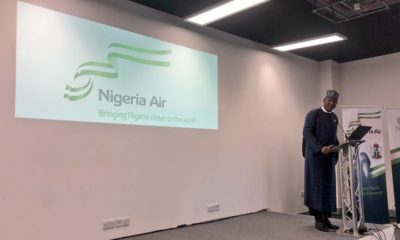- Stakeholders Laud FG’s Investment Plan for Nigeria Air
Stakeholders in the aviation industry have commended the Federal Government for the renewed interest in bringing the national carrier project to fruition.
Some of the stakeholders said the Federal Government had taken the right step by including the viability gap funding for the project in the 2019 budget.
Aviation industry consultant, Dr Al-Hameeda Fraser, said there was no reason funds should not be allocated for the realisation of the national carrier project in the 2019 budget, adding that the status of the project was that of an ongoing one which was only placed on hold due to gap funding issues.
According to her, due process stipulates a budget application and allocation for any funding requirement within the government ministries.
“The allocation of funds to ensure the implementation of the project is justifiable. The amount of N47bn is only over a $100m and that is not much in the aviation sector for government ‘s commitment and contribution towards the establishment of a national carrier. It signifies a very small percentage of the funding requirement which would be generated from investors and would provide the much needed confidence to encourage investors on the project,” she stated.
The Federal Government had last week approved N47.43bn for the Nigeria Air project in the 2019 budget, as a viability gap funding of $155m, which the Minister of State for Aviation, Senator Hadi Sirika, had explained was in line with the Outline Business Case that would enable the airline to start operations before the introduction of private equity funds.
Fraser said the most important aspect of the allocation was the fact that an OBC had been prepared for the project and the amount was based on the financial dimension and costing model which determined the total cost of funding including generating outline cash flow statements covering the project life.
She noted that the national carrier remained a laudable project and ought to receive the support of all Nigerians.
“It symbolises a gesture of our national rebranding besides justifiable reasons based on facts and figures of the huge traffic of travellers in and out of Nigeria since we are steadily becoming the economic hub of black Africa. So the project is worth whatever the government can afford to contribute towards its immediate implementation and realisation,” she added.
Aviation security expert, Group Capt. John Ojikutu (retd), said the Federal Government had said it would not have more than 10 per cent share in the airline, adding that the budgeted amount would be appropriate as the government’s contribution to the national carrier.
Ojikutu said, “N47bn is just about $130m and that can only fetch you not more than three fairly used medium-size modern aircraft. The minister said government would not have more than 10 per cent share, so I don’t think the amount is too much as the government’s share contribution.
“According to the minister, we are at the procurement stage where the participant should buy into it; foreign technical investors, Nigerian investors and later the public. Government must drive it not private. However, it is not a government airline but a national airline.”
Industry expert, Mr Tayo Ojuri, said the process was imperative to getting reputable investors with the technical and financial clout to invest in the Nigeria Air project.
He stated that there was still the need to develop a full business case and financial closure process in line with best international practice in Private Public Partnership implementation steps.
The Chairman of the defunct Air Nigeria Limited, Mr Jimoh Ibrahim, however, said the Federal Government should have a rethink on the proposed Nigeria Air project.
Ibrahim, in an interview said the only way for the national carrier project to be successful would be for the Federal Government to put systems and structures in place and not to make the airline government-owned or allow the government to lead it.
According to him, if the Federal Government must have an airline, it should consult with the few people who had operated airlines before to know the challenges they faced.
“I will not advise the Nigerian government, a developing country with a debt ratio of that magnitude, servicing 50 per cent of our gross income on debt to start an airline. I mean, that will be very difficult,” he said.
He stated that the idea of a national carrier would only become viable if the government allowed the private sector to drive the entire process.
He said, “The government cannot run an airline, it is not possible. Dubai Emirates airline remunerates about 20 per cent profit to the government. It is owned by the government but managed by the private sector. In this collaborative effort, the private sector takes 70 per cent of the profit and returns 20 per cent to the Dubai government and retains 10 as capital.
“If you do that in Nigeria, people will kill you. If President Muhammadu Buhari says I create Air Nigeria and put $5bn in it. At the end of the month, I make a profit of $1bn, I take $800m and give government $200m; what do you think will happen? They will burn down the place. They don’t want that. That’s why I said the government cannot run an airline.”

 Forex3 weeks ago
Forex3 weeks ago


 Naira2 weeks ago
Naira2 weeks ago
 Billionaire Watch2 weeks ago
Billionaire Watch2 weeks ago




 Naira2 weeks ago
Naira2 weeks ago




 Naira2 weeks ago
Naira2 weeks ago




 Naira1 week ago
Naira1 week ago




 Naira4 weeks ago
Naira4 weeks ago




 Naira3 weeks ago
Naira3 weeks ago














